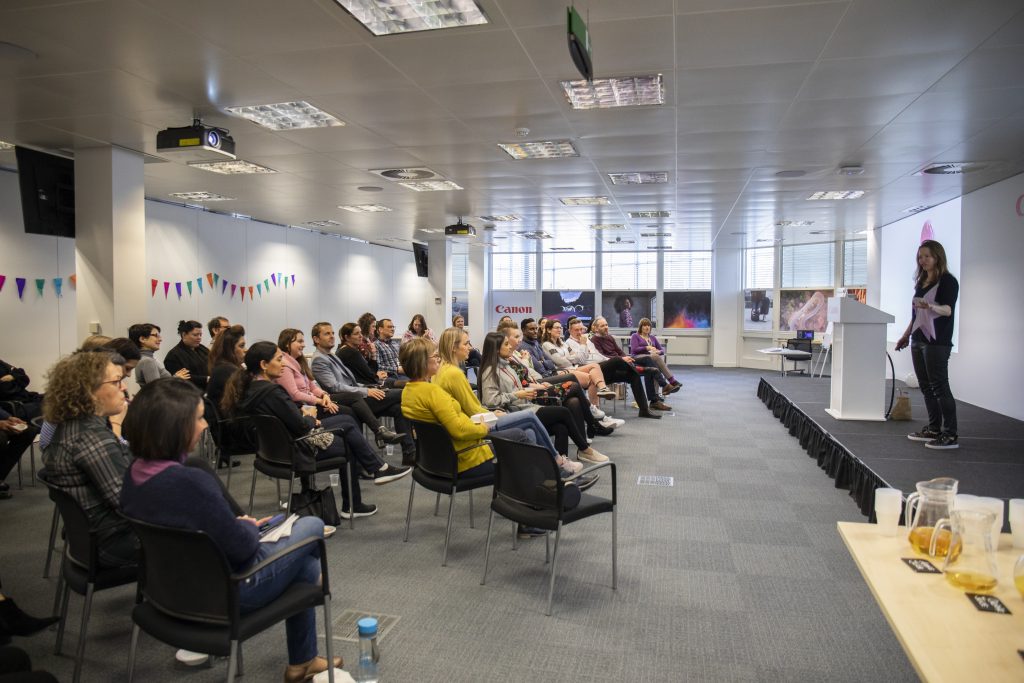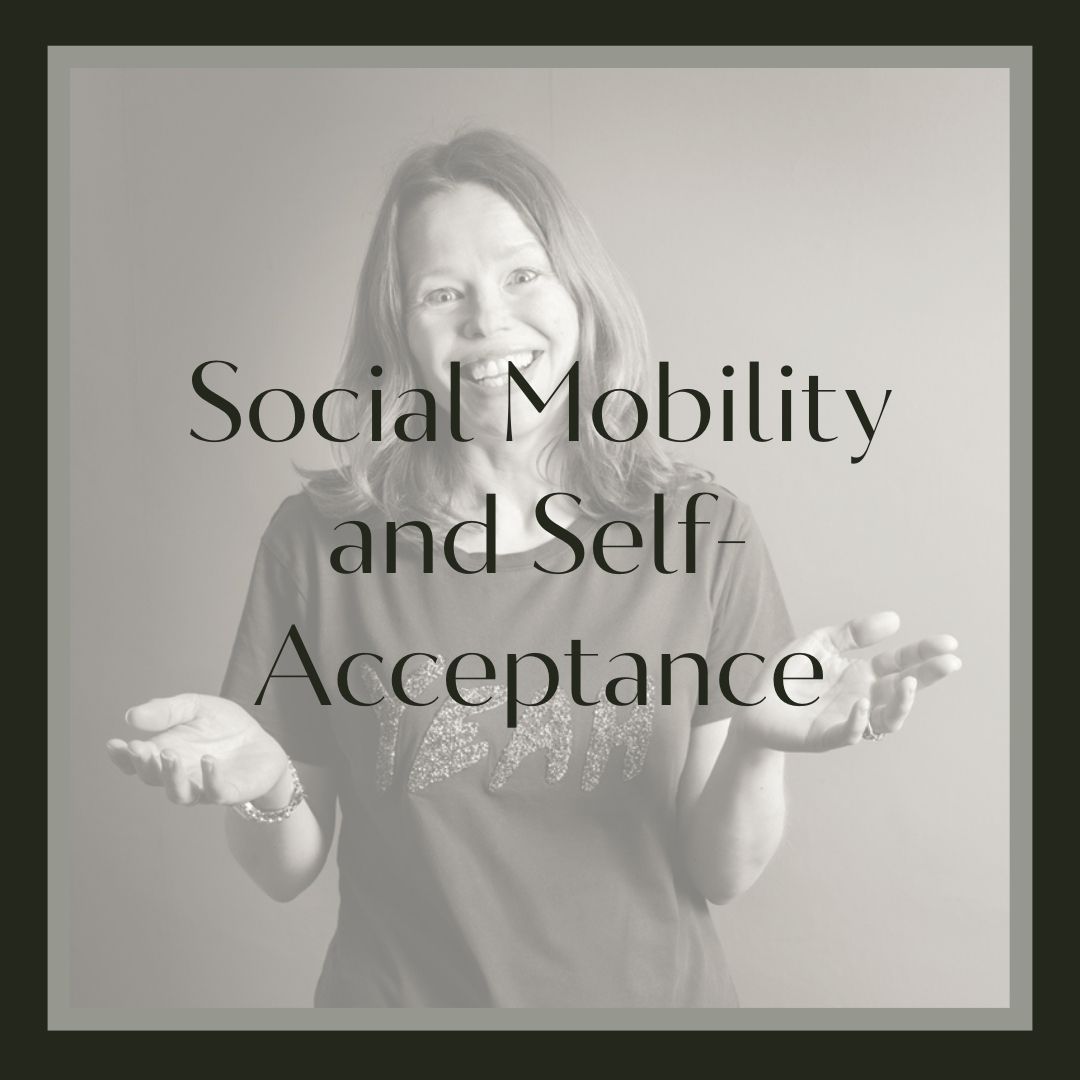Why we need to talk about class
Take it from the top
Tenacity is as good as a degree
Around the age of 22 I was interviewed for a sales admin role at a networking and structured cabling organisation. Whilst I didn’t have connections or a brilliant education, I did have the ‘gift of the gab’ and charm that is honed by the rough and tumble of the comprehensive school system and estate life. For all the social ease of the privately-educated (and believe me, I’ve met 16 year-olds who would not look or feel out of place at a House of Commons drinks reception), there are people I grew up with who are funnier, friendlier and better communicators than £30k a year in fees will ever get you.
As a result, I did a marvellous job on the sales director and HR manager and was certain they’d make me an offer on the spot. Imagine my surprise when the letter I received a couple of days later said they’d turned me down.
But! As my mother used to say “If you don’t ask you don’t get”. So, I phoned them back to ask why I didn’t get the job and they offered me the position based on my tenacity (and the fact the successful applicant didn’t last a week).
Whilst what the sales team thought they wanted was the person with the degree, what they needed was someone who could think on their feet and deal with the language and behaviour of the sales people – chiefly working class lads who were spending their salary on BMWs that would “go sideways”. I didn’t speak “techy” but I did speak their language. I learned to draw network diagrams, write perfect proposals and how to make 40% margin on a multiplexer. Thus began my career as a technology professional.
Loyalty as employability
By 23 I was at a HR and Payroll software provider where I learned it was unusual for someone without a degree to be in that part of the industry. Hardware and distribution was where people like me belonged, but software? That was for the university educated.
The hiring manager at the time demonstrated what we would now call ‘hiring for ‘add’ rather than ‘fit”. Because she ordinarily would hire graduates – and I didn’t have a degree – she asked for a character reference instead. Now, this was a challenge because it needed to be someone who had known me long enough to vouch for me, but who also wouldn’t speak about what an absolute bin-fire I’d made of my teens. This discounted everyone who’d ever taught me and 95% of my friends.
Fortunately, one of my closest friends pulled an absolute rabbit out of the hat – a rabbit I didn’t even know I’d put there.
You see, in common with lots of families around me, a lot of hospital visits took place during my childhood – to attend appointments with siblings with kidney disease, visit those who were living with cancer, elderly relatives recovering from falls, and every last person getting their tonsils out (it was a thing in the ’80s). I LOVED going to the hospital when my brothers were in and envied that access they had to the Play Room with it’s bottomless buckets of stickle bricks.
And so it was that when my friend was hospitalised that I went to visit her pretty much every single day. I took bad CDs and told even worse jokes. Gave friends a lift to see her and shot the breeze. Sat with her parents and brought them cups of tea. Turns out that act of loyalty and friendship told the hiring manager things about my character (persistence, loyalty, fearlessness, generosity) that she thought would be a valuable and positive contribution to the mixture within the team.
Learning to lead
Once I was in, I thrived – loving the opportunity to try my hand at team leadership and management for the first time. I learned the language of software and how genuinely nice developers are (seriously, the nicest guys in the company were in the development team. The sales guys pretended to go to the appointments we’d booked for them and racked up points on their licenses faster than you can say “speed camera”).
I got my first taste of share options and understanding what it means to be part of a privately-owned business. Learned how to conduct performance reviews and what 360 degree feedback was. Understood the power of CRM software and the lengths that people will go to to avoid filling an accurate pipeline out.
When the company was acquired, I felt rich! Meanwhile the founders got actually rich and half the developers left because they didn’t want to work for a big company. I, however, was ambitious to get to the top of the IT tree 😀
Software and soft skills
By 27 I was at Microsoft where I learned it was so unusual not to have a degree I would end up in bizarre conversations with people I was asked to mentor who were on the grad programme:
- They: “What’s your degree in?”
- Me: “I haven’t got one”
- They: “But HOW did you get a job here?!”
As well as being put in the amusing position of mentoring people who didn’t understand what they could possibly learn from someone who already had 8 years of business experience 😉 I gained vast amounts of knowledge on the differences between global and local businesses and the frustrations that exist between HQ and “the subsidiaries” and the delicate balance of trust between vendors and partners.
I learned how technology can change lives and how scorecards can drive peculiar behaviour. How some people live by the share price and others will refuse to tidy up the mess they’ve left in a meeting room even when you call them out on it (still pissed off with that guy…).
I learned a lot of hard lessons but I also learned some incredible soft skills.
Life skills from a corporate?
The power of soft skills training is often undervalued or underestimated by those for whom a career in the professions was always on the cards. I will try to exercise caution so as not to over generalise but there were many areas in which I simply didn’t have experience by virtue of my childhood role models, education and upbringing.
As someone who had experienced childhood bereavement, siblings with serious illnesses, family involvement with social services and been a birthing partner to their mother twice by the age of 18, I’d dealt with a lot of adult things before even reaching maturity.
Corporate life meant not just access to professional qualifications but also courses in negotiation, persuasion, emotional intelligence, mindfulness, interview skills, leadership, prioritisation…the list goes on… These made a fundamental difference to the way in which I dealt not just with work, but with life.
When you’ve grown up where everything is an emergency (screw important vs urgent – everything is on fire all of the time!) being given the tools and language to take a step back and think clearly is an opportunity (and a privilege) that I took full advantage of.
By the time I left the business, I not only knew ‘what colour my parachute is’ – I knew how to make it work.
Polished on the outside…
We can never know how differently life would have been, but I can say for certain that working in technology gave me the kind of meaningful salary which meant I had the ultimate privilege of choice. It gave me a solid financial platform from which I could scan the skies for opportunity and a network with whom I could explore possibilities. It gave me the ability to travel, to learn and expand my world. It set me up for the kind of creative career I desired but could never have pursued straight out of school.
As a working class, council estate kid, a career in tech was brilliant for me. And by return I was brilliant for the organisations that hired me. They got the full-fat, 100 miles an hour, ‘can-do’ person who would muck in. The chatty one that would speak to everybody. The curious one who could find out exactly what was going on because she got on with the Chief Exec’s PA. And the head of the datacentre. And the licensing admin. The one the partners liked because she took an interest in their business.
They got the person who would work silly hours. And put up with a LOT of crap without pushing back. And who would do the horrible jobs that no-one else wanted to do. And who’d probably take the blame and apologise when they didn’t need to. And they taught her that she didn’t have to do that. And gave her the skills to work out that she could say “No”. And how to apply some of those things to other parts of her life. They polished her up a bit so she could operate in wider circles and spread her wings. Until she felt confident enough to use her story to convince other people it was ok to share theirs too.
And whilst it has polished me a fair bit on the outside, you can rest assured, I’m still that council estate kid on the inside 😉
To be continued….
—-
If you like my writing style, you’ll LOVE my speaking style on topics including Social Mobility, Resilience and Tech Careers. To make an enquiry or book me for your next event, use the contact form or drop a line to [email protected]




